Are you facing issues with a settlement agreement that hasn't been honored? It can be frustrating when parties fail to adhere to their commitments, leaving you feeling uncertain and stressed. In this article, we'll explore the ins and outs of addressing a breach of settlement agreement, providing you with clear steps to take and important considerations to keep in mind. So, let's dive in and equip you with the information you need to navigate this challenging situationâread on!
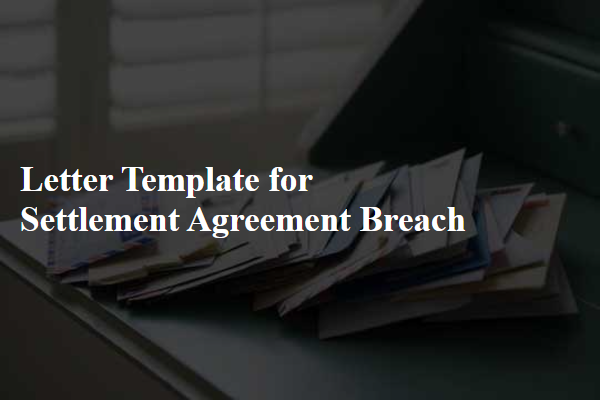
Parties Involved
The parties involved in a settlement agreement breach typically include the initiating party and the responding party. The initiating party, often referred to as the "Claimant," seeks enforcement of the terms stipulated in the settlement agreement, which was designed to resolve a specific dispute or grievance. The responding party, known as the "Respondent," is the individual or entity accused of failing to adhere to the agreement's terms, potentially leading to legal repercussions. This settlement agreement, which may have been established to settle issues stemming from business contracts, personal injury claims, or family law disputes, outlines obligations such as payment schedules, confidentiality clauses, and adherence to specific actions or inactions.
Breach Details
A settlement agreement breach can significantly impact the involved parties. Breach details, such as non-compliance with specific terms set forth in the October 5, 2022 agreement, may result in legal repercussions, including financial penalties or further litigation. For instance, failure to make the agreed $10,000 payment by the stipulated deadline can lead to increased tensions and potential court actions in notable jurisdictions like New York. Furthermore, failure to comply with confidentiality clauses can expose sensitive information, damaging reputations. Key entities, such as the signing parties' legal representatives, must navigate these breaches to seek resolution effectively while adhering to the governing laws in the relevant jurisdiction.
Legal Consequences
A breach of a settlement agreement can lead to serious legal consequences for the violating party, potentially including financial penalties and enforcement actions. Settlement agreements, often reached in legal disputes, typically outline terms to resolve differences without further litigation. If one party fails to adhere to these terms, the other party may file a motion in court to enforce the agreement. Courts may impose remedies such as monetary damages, specific performance (requiring the breaching party to fulfill their obligations), or even attorney's fees resulting from enforcement actions. Notably, repeated breaches can damage reputations and result in adverse judgments in future legal matters, emphasizing the importance of compliance with the terms set forth in these legally binding documents.
Proposed Remedies
A settlement agreement breach can lead to a variety of consequences depending on the nature of the breach and the specific terms outlined in the original document. Proposed remedies for a breach of settlement agreement often include monetary compensation determined by calculated damages, specific performance mandates where the breaching party is required to meet the initial agreement's obligations, or modification of existing terms to ensure compliance. Mediation sessions, overseen by third-party professionals, can facilitate dialogue between both parties. In some instances, legal action may be pursued in a court jurisdiction such as the Superior Court of California, if informal resolutions fail. Understanding the exact terms, including deadlines and penalties, is crucial to restore the affected party's rights and maintain the integrity of the original agreement.
Timeframe for Response
Failure to adhere to the settlement agreement terms can lead to significant legal consequences. Timely responses within specified timeframes are crucial; for instance, a standard 30-day period is often outlined for addressing breaches. Agreements typically stipulate that the receiving party must acknowledge the breach in writing, detailing corrective actions. Failing to comply can result in escalation to litigation, potentially involving mediation or arbitration processes as mandated by contractual obligations. Legal representation during this timeframe ensures that all responses align with jurisdictional laws and protect the interests of the breached party.
Letter Template For Settlement Agreement Breach Samples
Letter template of inquiry related to settlement agreement non-compliance.
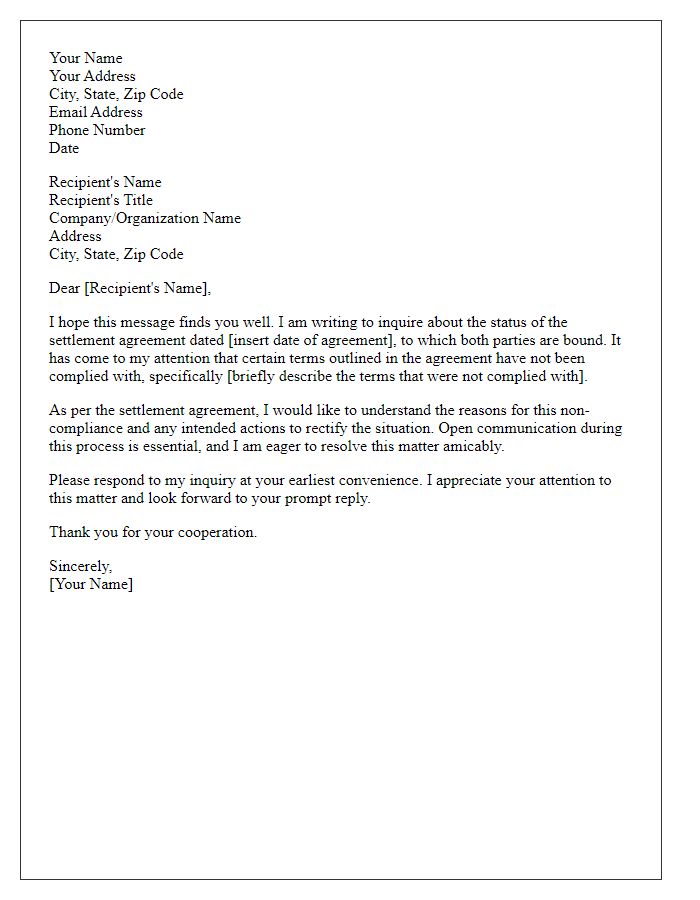
Letter template of notification for alleged breach of settlement agreement.
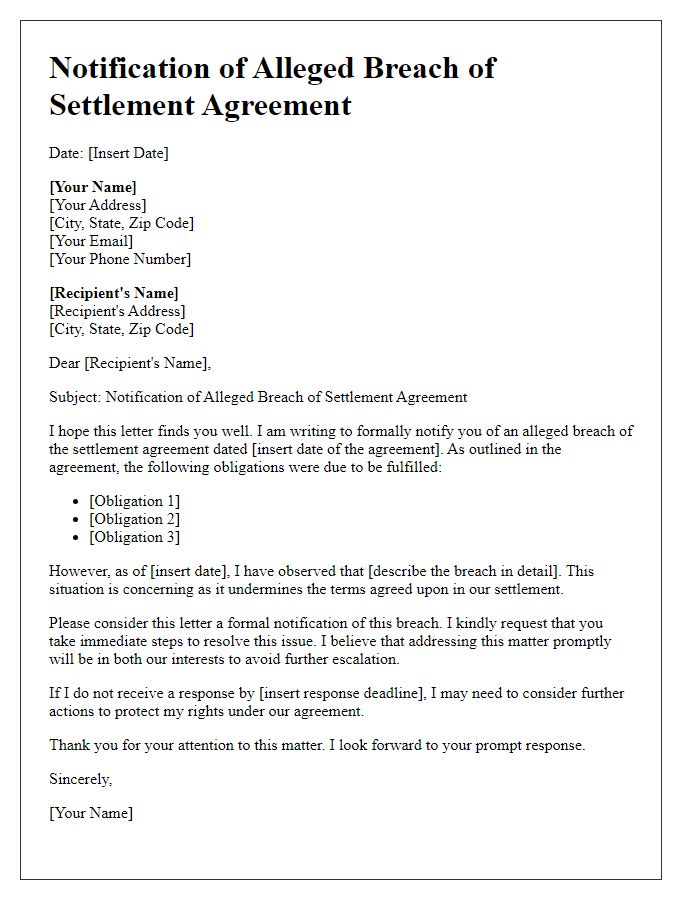
Letter template of follow-up regarding settlement agreement transgression.
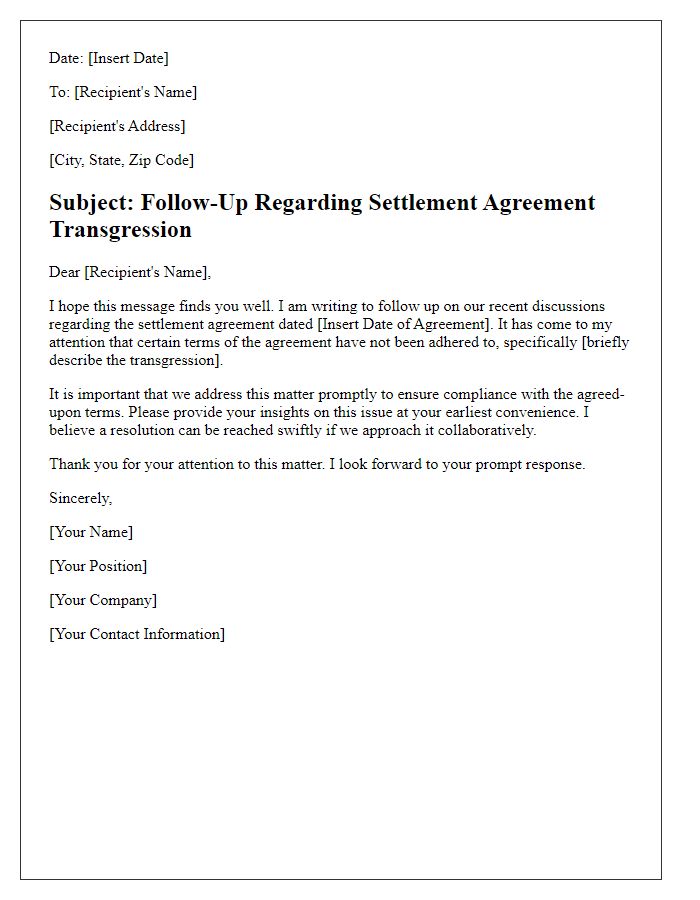
Letter template of appeal for mediation on settlement breach disagreements.
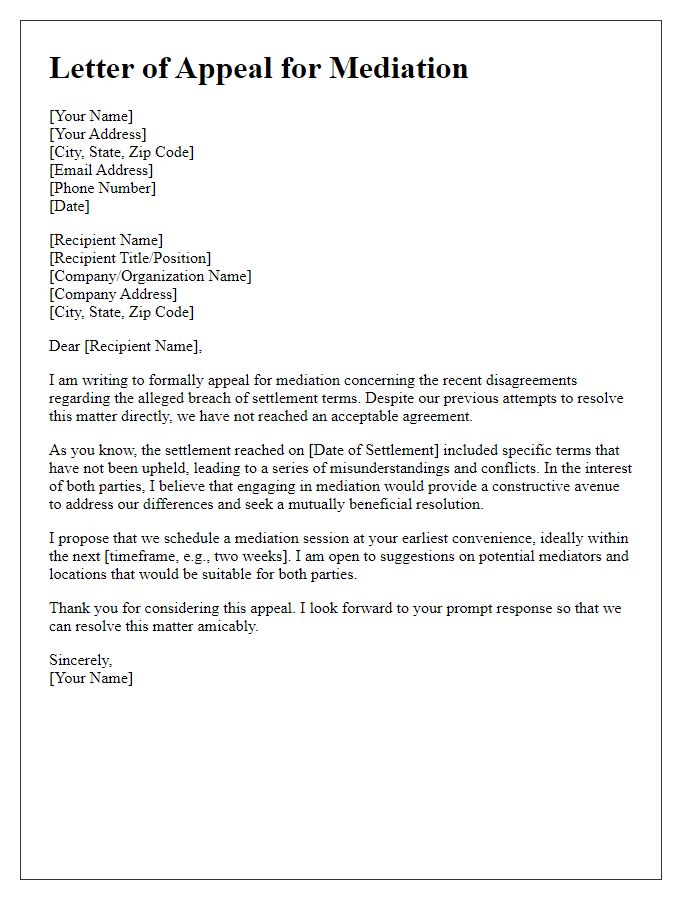
Letter template of reminder concerning settlement agreement obligations.
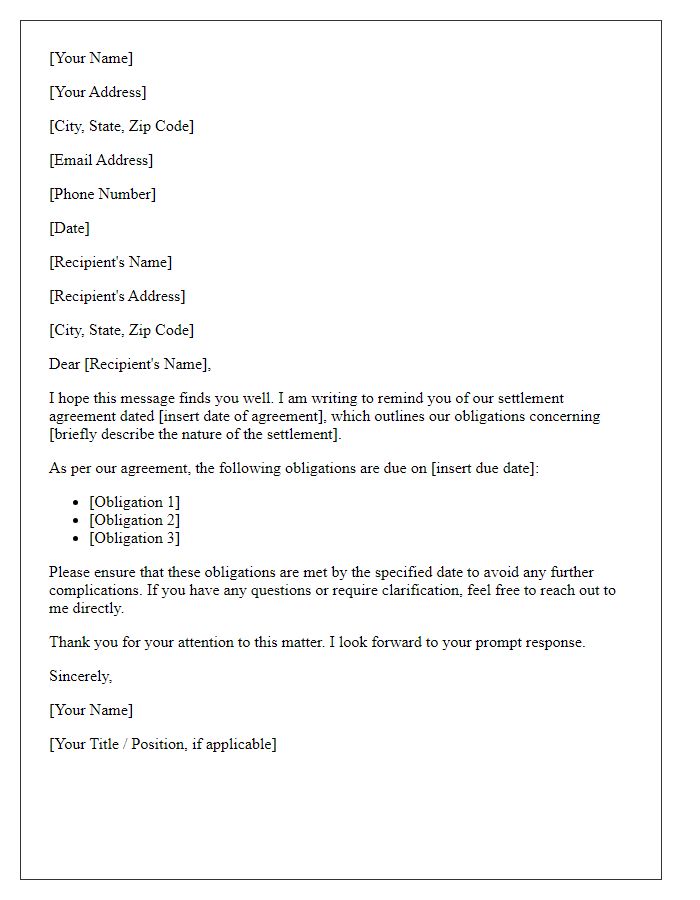

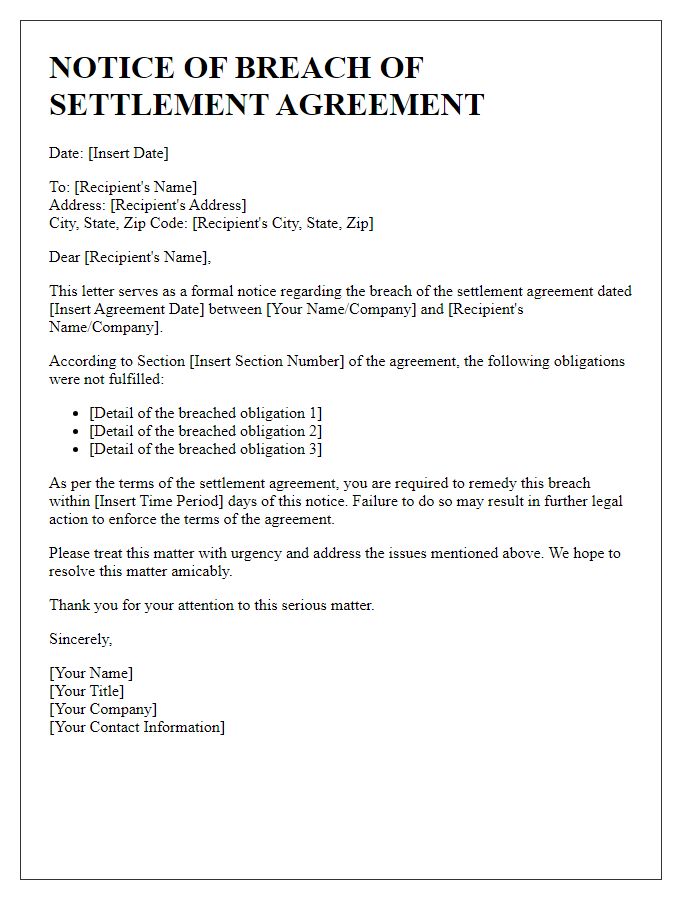
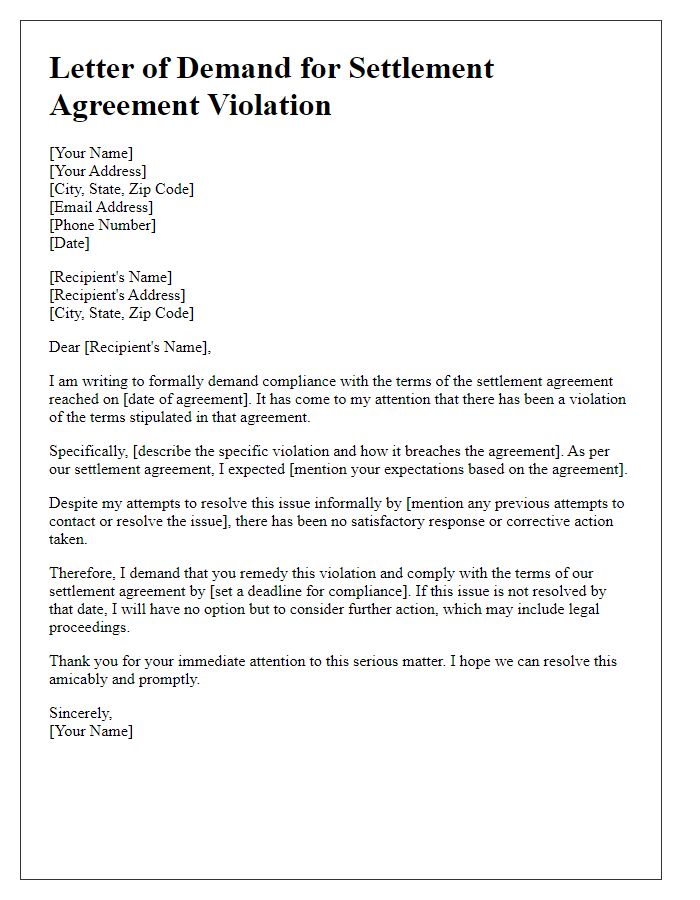
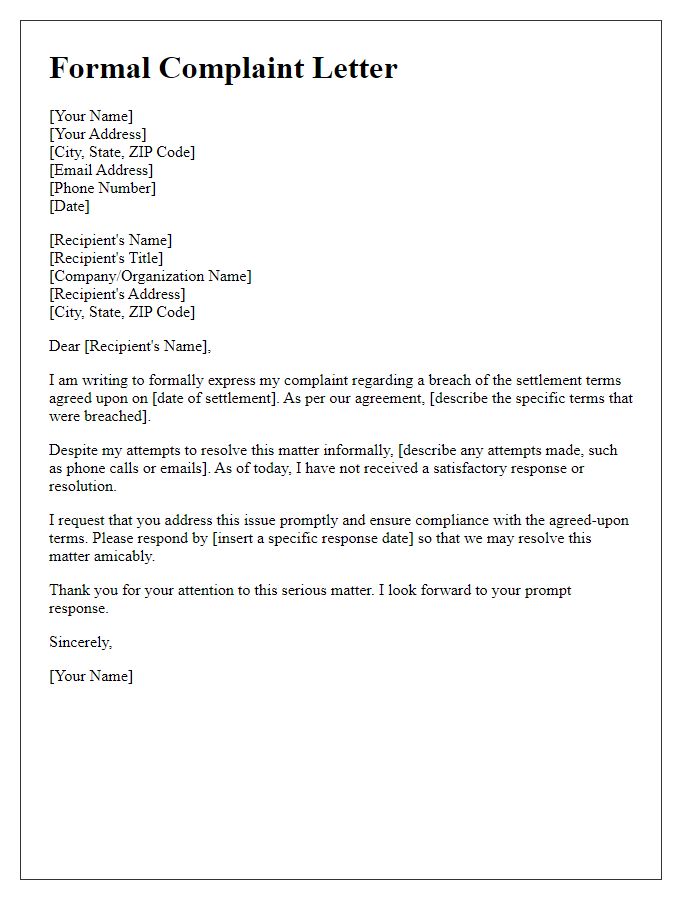
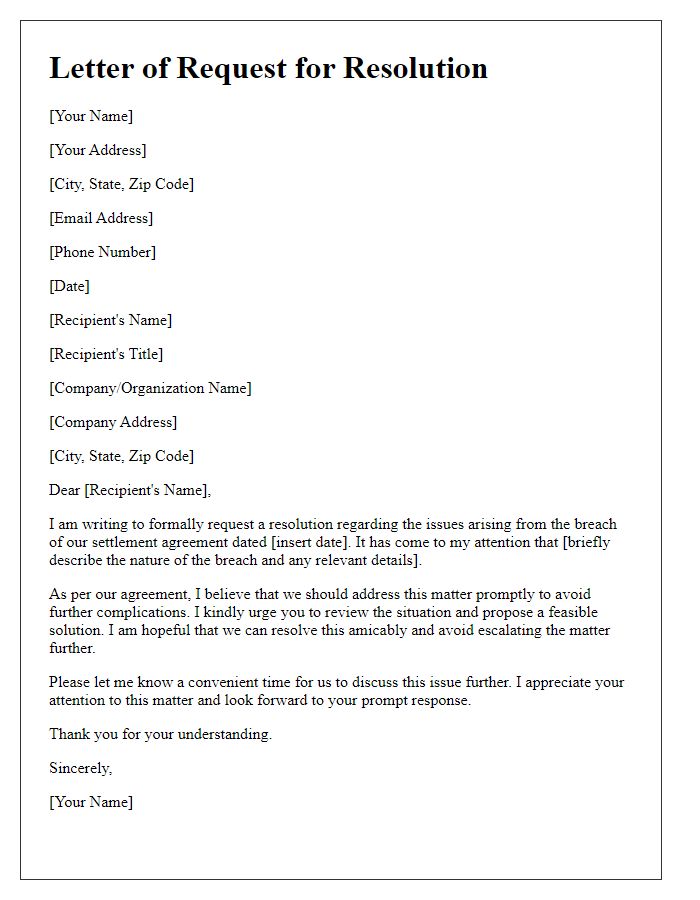
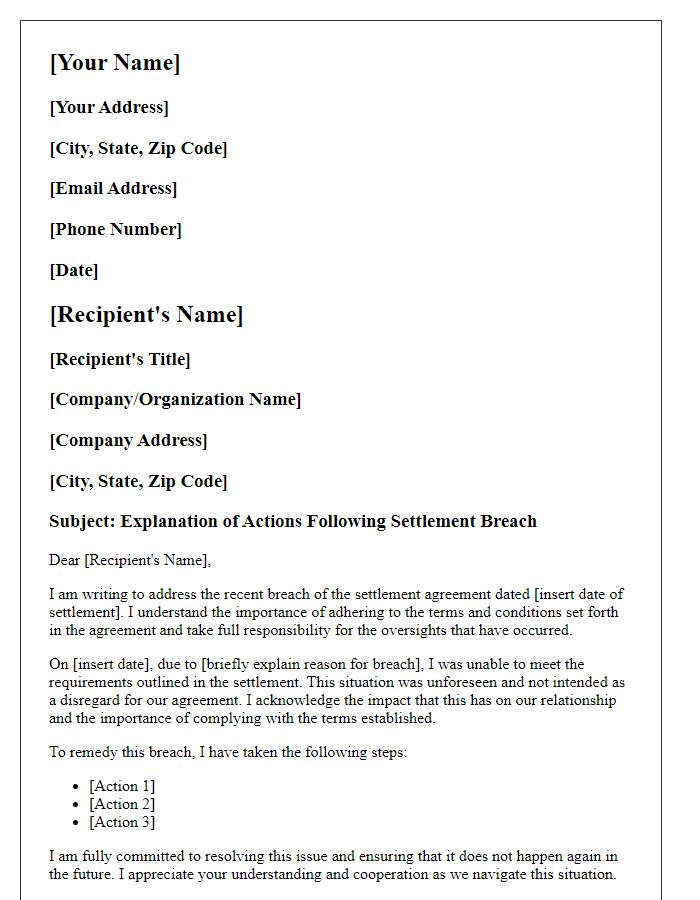


Comments